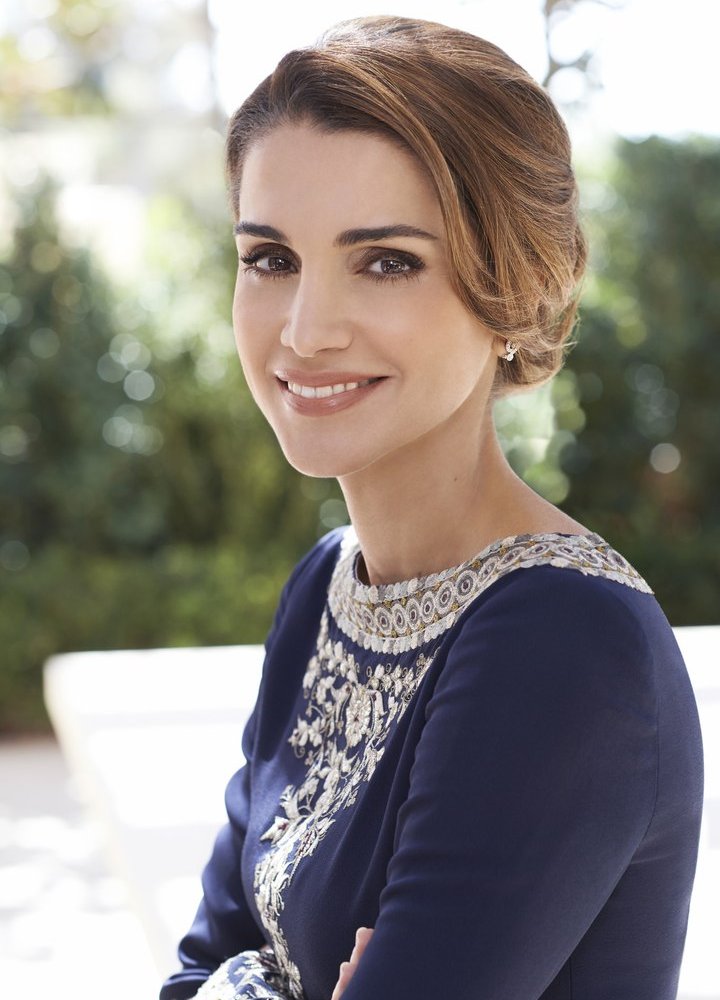Queen Of Jordan: A Deep Dive Into Her Life And Legacy
The Queen of Jordan has become a significant figure in the Middle East, known for her dedication to social causes and her influence in both local and international arenas. As the wife of King Abdullah II, Queen Rania has played a crucial role in shaping Jordan's image on the world stage. This article will explore her life, contributions, and the impact she has made as a queen. With a focus on her background, achievements, and philanthropic efforts, we aim to provide a comprehensive understanding of what makes her an influential figure in today’s society.
In a world where royal figures often symbolize tradition and heritage, Queen Rania stands out for her modern approach and commitment to progressive values. She has utilized her platform to advocate for education, women's rights, and youth empowerment, aligning her initiatives with global goals. Her story is not just one of privilege; it is also one of responsibility and service.
This article will delve into various aspects of Queen Rania's life, including her biographical details, her role as a queen, and her significant contributions to Jordan and beyond. Readers will gain insights into how she navigates her responsibilities while remaining a relatable and approachable figure in the eyes of her people and the world.
Table of Contents
- Biography of Queen Rania
- Early Life and Education
- Marriage to King Abdullah II
- Role as Queen
- Philanthropic Efforts
- Global Advocacy
- Impact on Jordan and the World
- Conclusion
Biography of Queen Rania
Queen Rania Al Abdullah was born on August 31, 1970, in Kuwait City, Kuwait. She belongs to a Palestinian family that traces its roots to Tulkarm, a city in the West Bank. She spent her early life in Kuwait until the Gulf War in the early 1990s forced her family to relocate to Jordan.
Personal Data and Biodata
| Date of Birth | August 31, 1970 |
|---|---|
| Place of Birth | Kuwait City, Kuwait |
| Nationality | Jordanian |
| Husband | King Abdullah II |
| Children | Four |
Early Life and Education
Queen Rania attended the New English School in Kuwait, where she excelled academically. Following her family's relocation to Jordan, she pursued further studies at the American University in Cairo, earning a degree in Business Administration.
Her education laid a strong foundation for her future roles, equipping her with the skills necessary for her responsibilities as queen.
Marriage to King Abdullah II
In June 1993, Rania married Abdullah II, who was then the Crown Prince of Jordan. The couple's marriage was not only a union of love but also a significant partnership in leading the Jordanian people. They have four children: Crown Prince Hussein, Princess Iman, Princess Salma, and Prince Hashem.
As a royal couple, they have worked together on various initiatives to improve the lives of Jordanians, focusing on education and health care.
Role as Queen
Queen Rania's role extends beyond traditional duties; she actively engages in community service and international diplomacy. She is known for her approachable demeanor, often engaging with citizens and addressing their concerns directly.
Her royal duties include representing Jordan at international events, promoting tourism, and participating in charitable activities. Queen Rania has also been a vocal advocate for women's rights and education, utilizing her platform to raise awareness of critical issues affecting Jordan and the broader Middle East.
Philanthropic Efforts
Queen Rania is the founder of several initiatives aimed at improving education and social welfare in Jordan. Some of her notable philanthropic efforts include:
- **Queen Rania Foundation**: Focuses on enhancing educational opportunities for children.
- **Jordan River Foundation**: Works to improve the quality of life for marginalized communities.
- **The Children’s Museum Jordan**: Promotes learning through interactive and engaging experiences.
Global Advocacy
Beyond her national efforts, Queen Rania is recognized globally for her advocacy work. She has spoken at various international forums, emphasizing the importance of education and the need for reform in the Arab world.
Her efforts have garnered recognition from numerous organizations, solidifying her status as a leading voice for change in the region.
Impact on Jordan and the World
Queen Rania's influence extends beyond her royal duties. Her advocacy has led to tangible changes in educational policies and social programs in Jordan, making her a crucial figure in the country's development.
Through her work, she has inspired many young women to pursue leadership roles and has fostered a sense of community among Jordanians. Her commitment to social justice and equality resonates with people around the world, making her a respected figure on the international stage.
Conclusion
In summary, Queen Rania of Jordan exemplifies the qualities of leadership, compassion, and dedication. Her life story and philanthropic efforts underline her commitment to improving the lives of others, particularly in the fields of education and women's rights. As she continues to advocate for social change, her legacy will undoubtedly inspire future generations.
We invite you to share your thoughts on Queen Rania's contributions or any other topics related to her work. Feel free to leave a comment below, and don't forget to share this article with others who may be interested.
Thank you for reading! We hope to see you again soon for more insightful content.
How Did Princess Margaret Die? Unraveling The Mystery Of A Royal Life
Foo Fighters Members: The Dynamic Force Behind The Band
Morgan Wallen's Son: A Deep Dive Into His Life And Legacy


